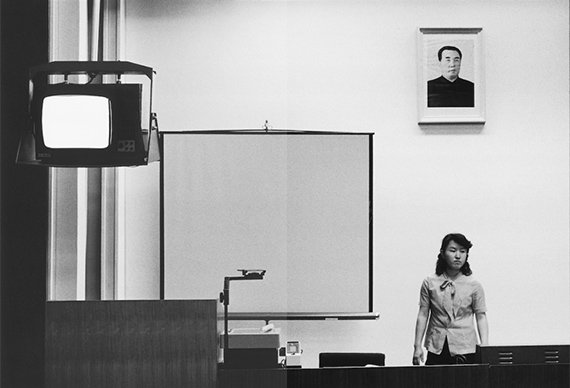
Somewhere in Korea
North Korea, 1984, 1989 / South Korea, 2023
Imre Benkö » Molnár Zoltán »
Exhibition: 30 Aug – 5 Oct 2025
Hungarian House of Photography
Nagymezõ utca 20
H-1065 Budapest
+36-1-4732666
maimano@maimano.hu
www.maimano.hu
Tue-Sun 12-19
Imre Benkő (1943–) and Zoltán Molnár (1973–) are indispensable figures in contemporary Hungarian documentary photography. Their paths crossed at one point during their careers, and they have maintained a close friendship ever since. The history of Hungarian photography, stretching back to the 19th century, features several teacher-student relationships that often developed into mentor-apprentice dynamics. However, the connection between these two photographers has never eclipsed their autonomous work. Imre Benkő’s strong visual presence is evident wherever Zoltán Molnár travels, but it does not overshadow Zoltán Molnár's current projects. Today, we see two documentary photographers with fully developed visual styles. Both are drawn to the Far East. Benkő continues to explore the major cities of China, while Molnár has found a profound attraction to South Korean culture, which captivates him both visually and spiritually. This personal commitment is crucial for creating any internationally acclaimed photo series.
Imre Benkő first traveled to North Korea as a tourist in 1984. Within the limits allowed to him, he documented certain segments of the country, which was already operating as a dictatorship at the time. Naturally, he could only capture what he was permitted to, as he was not allowed to travel freely, and his subjects and visual choices were closely monitored while taking photos. In 1989, he returned to Pyongyang as a photojournalist for Képes 7 magazine, where he documented the events of the largest World Festival of Youth and Students. Alongside the “expected” images, however, he also created works that reflected his own visual style—images that convey a sense of timelessness, both within his own body of work and in relation to the North Korean context.
Zoltán Molnár's photographic vision shares similarities with that of his former university professor, particularly in terms of his intentions and moral foundations. His work demonstrates the visual quality of truly outstanding travel photographers. Rather than simply focusing on the interesting or exotic aspects of a location, he filters his experiences through his own perspective, creating personal interpretations. For him, too, it is not just a place's geographical or political distinctiveness that makes it worthy of presentation.
In the works of travel photographers Imre Benkő and Zoltán Molnár, one can discern a personal evolution that unfolds through inner journeys, accompanied by a refined visual world that emphasizes the experiences of others. Although each follows their own artistic direction, the two series nevertheless connect the spiritual roots of North and South Korea, revealing deeper parallels between the two countries that may initially seem distant or unrelated.